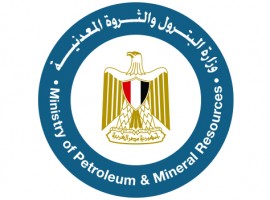Amid the coronavirus outbreak and shutdowns that are imposed on most industries around the world, some workers have to continue their missions and take risks in order to serve others. During the crisis, workers of fuel stations kept their positions in the frontlines of the pandemic to keep delivering energy and fuel across Egypt.
International oil companies (IOCs) and national oil companies (NOCs) started applying several precautionary procedures in their fuel stations in order to keep workers and customers safe while keeping the workflow unaffected.
What Are These Precautionary Procedures?
The Ministry of Petroleum and Mineral Resources (MoP) issued some strict instructionsfor the sector’s companies to follow,obliging their employees and visitors to wear face masks in the workplaces. The MoP also provided sanitizing units to be installed at the gates of most of petroleum companies and sites.Such procedures were meant to ensure the protection of workers especially in fuel stations as well as the customer service employees for natural gas delivery, who are more exposed for infections.
Operation Sustainability
According to the IHS Markit, extreme lockdown measures have hammered gasoline demand, with retail gasoline demand expected to decrease 48% during 2020. Moreover, it was forecasted that gasoline sales will remain below their pre-COVID level for at least another year.
However, margins have already started trending upwards and retail station’s fuel earnings are actually higher than they were before COVID-19. The main reason is because IOCs beganexploringnew ways and solutions to pass through these crises and began deducting their expenditures and implementing cost efficiency strategies.
For example, ExxonMobil announcedin April 2020 that it deducted its capital spending of the year by 30% and lowered cash operations by 15% to cope with the demand decline as a result of coronavirus spread. The company said that such measures were applied so as to increase efficiencies and reduce costs.
Moreover, Total decided to cut its CAPEX costs throughout 2020 by more than 20%, reducing net investments to less than $15 billion. The Chairman and CEO of Total, Patrick Pouyanne, announced, that they saved $800 million on operating costs instead of $300 million. However, the company tried to keep the workflow operating as usual without affecting the production cycle or the workers’ stability.
Mohamed Abdel Baky, an employee at one of Total’s fuel stations that spreads allover Egypt, said that operations during curfew was decreased to about 60% to 70%, but this did not affect the stability of the workers. “Our company supported us by adding EGP 600 to our salaries since the start of the crises,” added Abdel Baky.
Atef Farrag, an employee at a fuel station for a private Egyptian Company, told EOG that“despite the decrease in his company’s revenues by nearly 50%, the company did not lay off any one or deduct our salaries.”
Fuel Stations Situation and HSE Culture
Fuel stations carried on with their operation, but with special care from the owners. Additionally, health, safety and environment(HSE) culture became increasingly important during this time. Despite employees’ fear of infection, Farrag did not hesitate to go to work, knowing that measures were taken to ensure his health and safety. Farrag admits that he even started to have more HSE awareness and take more precautions. “The administration reduced the workforce especially during the curfew to be eight instead of 12 to keep them safe as well as customers,” Farragadded.
Abdel Baky added that, “the station is sanitized every hour and Total administration stressed on social distance at not less than 1.5 meters. Abdel Baky pointed out that Total is fully responsible for any worker or employee if any infection had taken place in terms of health care and financial issues until the recovery.
A manager of a private fuel station, preferring anonymity, told EOG that “the station is sanitized twice per day since the start of [the] pandemic and there is a stress on the personal hygiene for the workers in addition to applying the precautionary procedures and the station is provided by the needed carbon and foam fire extinguishers.”
Wael Abdel Ghany, CEO of Intelligent Safety Solutions (ISS), And member of the EOG Technical Committee concluded that HSE culture is enhanced during the coronavirus’ existence. He also noted that HSE culture is now a habit and a style of life for oil and gas employees. Abdel Ghany elaborated that throughout his experience in the oil and gas industry, he noticed that HSE culture is improving over time in Egypt. This point was proven correct when the oil and gas sector in Egypt managed to stand up against the pandemic and push ahead








